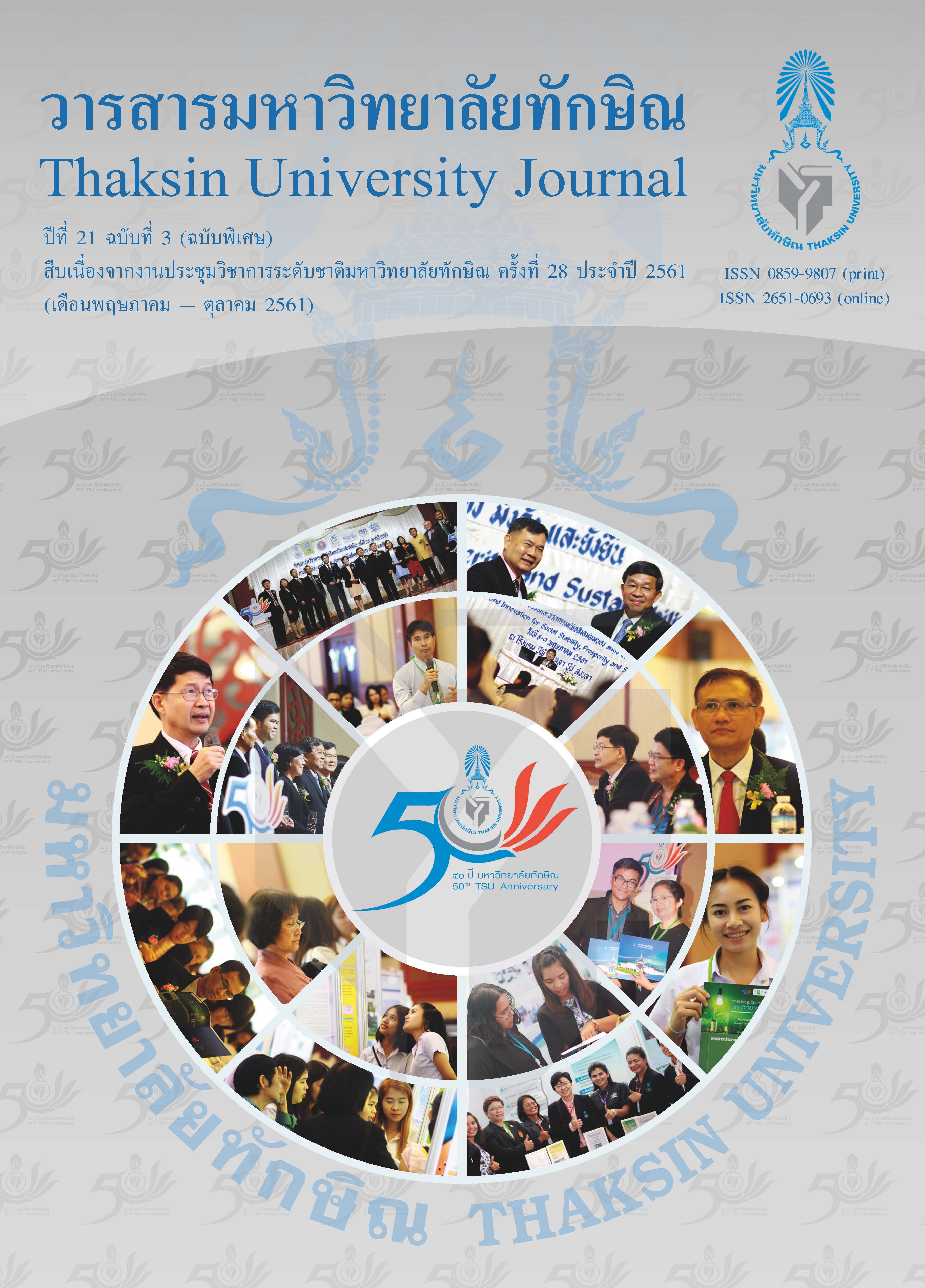A Study of Influence Factors Affecting to Esterification Reaction of Waste Coffee Grounds Oil using Response Surface Methodology
Main Article Content
Abstract
Using non-edible oil as feedstock for biodiesel production has the potential to reduce the production cost of biodiesel and, as a result, a selling price of biodiesel is low. However, due to the high free fatty acid (FFA) content, non-edible oil needs to be pretreated in order to reduce the concentration of FFA by using esterification reaction in the presence of acid as catalyst. This research aims at study the influence of parameters, including the methanol (MeOH) to FFA molar ratio, quantity of catalyst, temperature and reaction time, which affect to esterification reaction. Waste coffee grounds oil (WCGO) with initial acid value as 16.5% has been used as a sustainable feedstock. A central composite design (CCD) coupled with response surface methodology (RSM) is used to study the effect of factors. Operating parameters such as alcohol to FFA molar ratio, catalyst loading, temperature and reaction time on the FFA reduction have been studied. The results show that all parameters are correlated with the % FFA reduction. In addition, the reaction temperature is the most significant factor, followed by reaction time, % catalyst and alcohol to FFA molar ratio, respectively, with a considerable effect on % FFA removal.
Article Details

This work is licensed under a Creative Commons Attribution-NonCommercial-NoDerivatives 4.0 International License.


